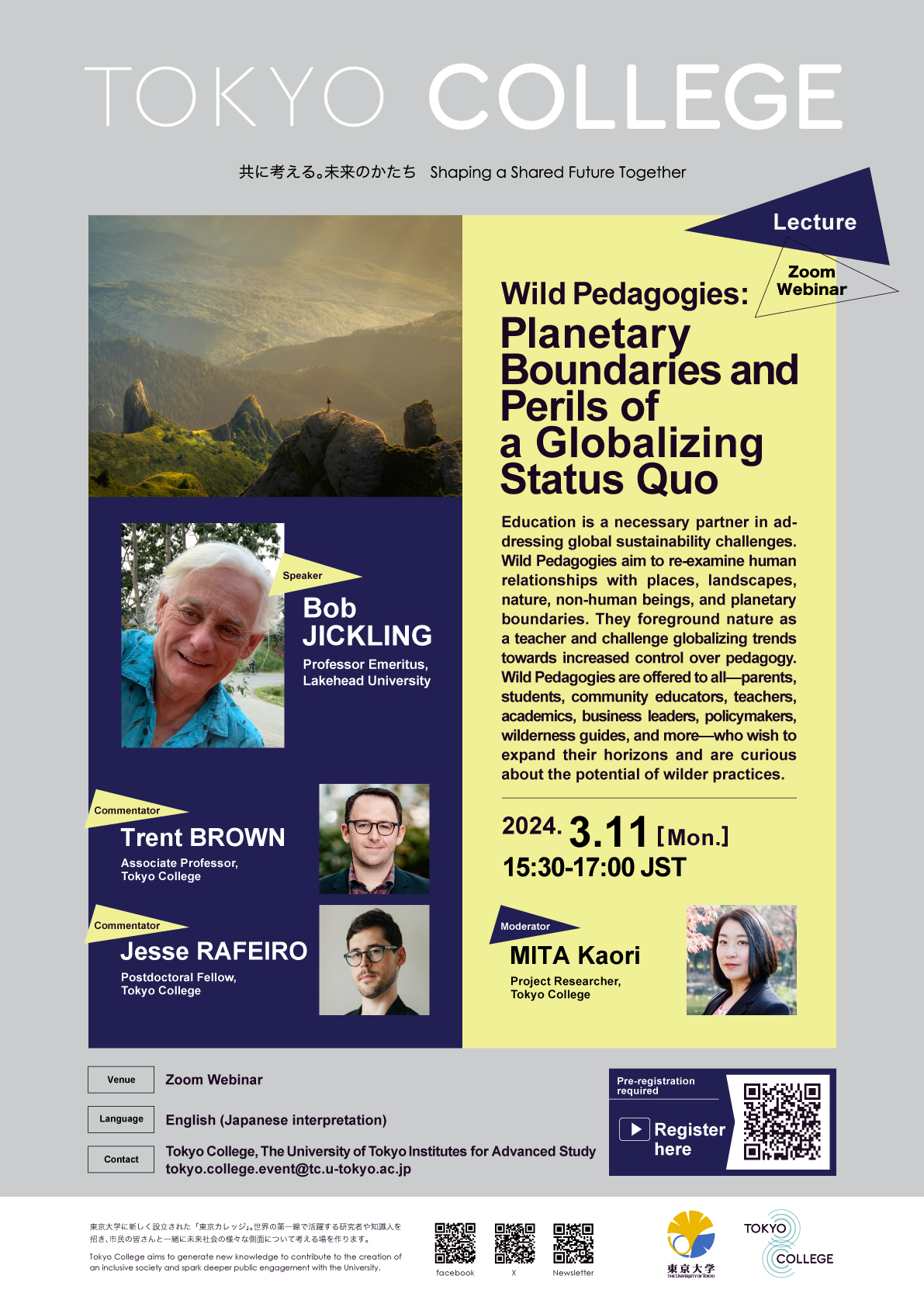Wild Pedagogies: Planetary Boundaries and Perils of a Globalizing Status Quo (Lecture by Prof. Bob JICKLING)

| Date(s) | Monday, March 11th, 2024 15:30-17:00 JST |
|---|---|
| Venue |
Zoom Webinar (Register here) |
| Registration | Pre-registration required |
| Language | English (Japanese interpretation) |
| Abstract |
Education is a necessary partner in addressing global sustainability challenges. Wild Pedagogies aim to re-examine human relationships with places, landscapes, nature, non-human beings, and planetary boundaries. They foreground nature as a teacher and challenge globalizing trends towards increased control over pedagogy. Wild Pedagogies are offered to all—parents, students, community educators, teachers, academics, business leaders, policymakers, wilderness guides, and more—who wish to expand their horizons and are curious about the potential of wilder practices. |
| Program |
Lecturer Bob JICKLING (Professor Emeritus, Lakehead University) Commentator Trent BROWN (Associate Professor, Tokyo College , University of Tokyo) Jesse RAFEIRO (Postdoctoral Fellow, Tokyo College , University of Tokyo) Moderator MITA Kaori (Project Researcher, Tokyo College, The University of Tokyo) |
| Speaker Profile |
Bob Jickling, Professor Emeritus at Lakehead University, has interests in environmental education and philosophy and his current research attempts to find openings for radical re-visioning of education. His most recent books include Wild Pedagogies: Touchstones for Re-Negotiating Education and the Environment in the Anthropocene and Environmental ethics: A sourcebook for educators. As a long-time wilderness traveller, much of his inspiration is derived from the landscape of his home in Canada’s Yukon. |
| Organized by | Tokyo College, The University of Tokyo |
| Contact | tokyo.college.event@tc.u-tokyo.ac.jp |
















